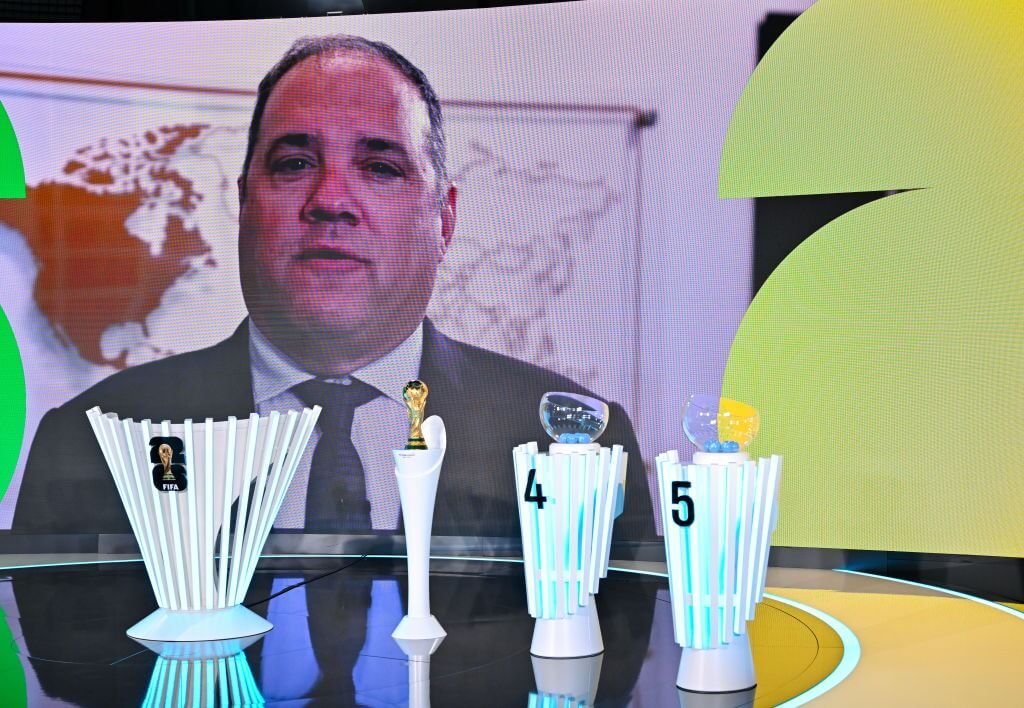CONCACAF President and FIFA Vice President Victor Montagliani said Thursday the coaches of the United States, Mexico and Canada’s men’s national teams had input into where each team would begin the 2026 World Cup.
“That discussion wasn’t just about the tournament. It also involved speaking with the federations and their coaches,” Montagliani told The Athletic in an interview. “You have to be respectful of the team and where they may want to start to play.”
Montagliani spoke to The Athletic while visiting Toronto to speak to local business leaders and take part in a speaking engagement, just a few days before the schedule for the 2026 World Cup including locations of games for the three co-host nations and the World Cup final will be revealed.
The sheer size of North America means many teams could have travel concerns, and Montagliani offered some insight into what Gregg Berhalter, Jaime Lozano and Mauro Biello (coaches for the U.S., Mexico and Canada respectively) had to say when consulted about the scheduling process.
“They all wanted to make sure that with their training bases, after a match they didn’t have to fly five hours to a training base, every game,” Montagliani said. “They want to be able to move, and have, as much as they can, a bit of a home, right? So we discussed that all with (co-host nation’s coaches).
“They want as much continuity and as much regularity as they can get in the tournament.”
Montagliani stressed that the coaches’ input was not the sole factor in determining opening matches for the three co-host nations.
“Kick-off times are always important, right? So that’s another thing,” Montagliani said. “Obviously the stadium has to be of the level for the opening match as well, in that country.”
‘Pods’ will play a role in scheduling
Montagliani stressed multiple times that location-based pods for teams will be ultilized in crafting a World Cup schedule that must take into account not only the size of the host nations but also the increase from 32 to 48 teams.
It’s is unlikely teams will have to play their group-stage games outside regional clusters.
There are 16 host cities across the three countries: four cities across Canada and the United States in the west region, eight cities across the United States and Mexico in the central region and four cities across Canada and the United States in the east region.
Montagliani said Sunday’s announcement will allow fans to understand how these regional pods will come into play. The schedule will likely be designed to keep teams in one area of the continent for as long as possible.
Montagliani hinted that teams will be incentivized to do well in the group stage, “especially if you win your group because then you’re staying on a certain coast, whatever that coast may be.”
Canada will have games in Toronto and Vancouver
At least from the outside, Canada’s men’s national team faced a tricky proposition in terms of scheduling: the distance between Vancouver and Toronto, the lone two Canadian host cities, stretches across three time zones. Lengthy flight times could be involved. The two cities are part of separate regions designated by FIFA for the 2026 World Cup.
But asked if there is a possibility that Canada would not play a group stage game in Toronto or Vancouver, Montagliani said “no.”
“The reality of this World Cup, although it’s three countries, is that when you look at it from an operations standpoint, it’s 16 cities. There’s no real border,” Montagliani said.
(Photo: Harold Cunningham – FIFA/FIFA via Getty Images)
Read the full article here


